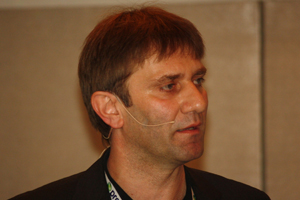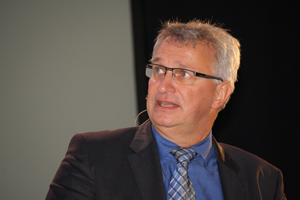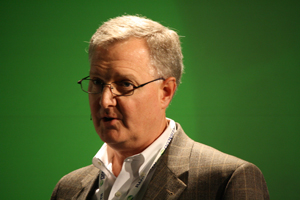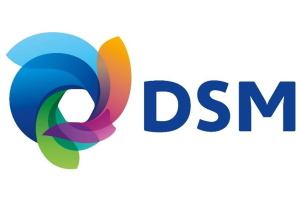Intervet/SP tours through Europe with PCV2 vaccine
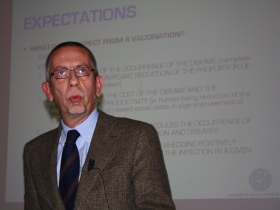
Intervet/Schering-Plough Animal Health is touring through various countries in Europe with seminars related to its one-shot vaccine Porcilis PCV, to be used against Porcine Circovirus 2 infections.
The vaccine was granted authorisation for a one-shot application in©January 2010. The seminar kicked off in the Netherlands, after which Belgium, France, Portugal and Spain followed. Seminars in Germany, Switzerland, Italy and Poland are still coming up.
Each seminar has local veterinary speakers, added by two international speakers. Prof Dr Hans Nauwynck (Ghent University) summarised the latest updates around PCV2 pathogenesis. What does the virus look like, how does it replicate and what are its weaknesses and strengths? He indicated that many laboratories around the world still face difficulty in trying to recreate Postweaning Multisystemic Wasting Syndrome (PMWS) from gnotobiotic pigs.
Conclusions from the lecture of Prof Nauwynck are that PCV2 virus might still develop further in time but that control of this unique virus is very important in pork production.
Parma University
Prof Dr Paolo Martelli (Parma University) then touches on what can be expected from vaccination – and when a vaccine can be called efficacious. Prof Martelli’s lecture furthermore included data on both cellular and humoral immunity induced by this new vaccine and he stressed the importance of antibodies for optimal protection.
He summarises that the new PCV2 vaccine reduces the probability of a pig suffering from PCVD, reduces the number of individual treatments, improves carcass weight and reduces the viral load.
In the lectures of the local speakers this is further elaborated by showing a clear relation between sero-conversion after vaccination and protection, as measured by relevant economical parameters, in relation to unvaccinated control pigs.
Related website:
• Intervet/Schering-Plough Animal Health



